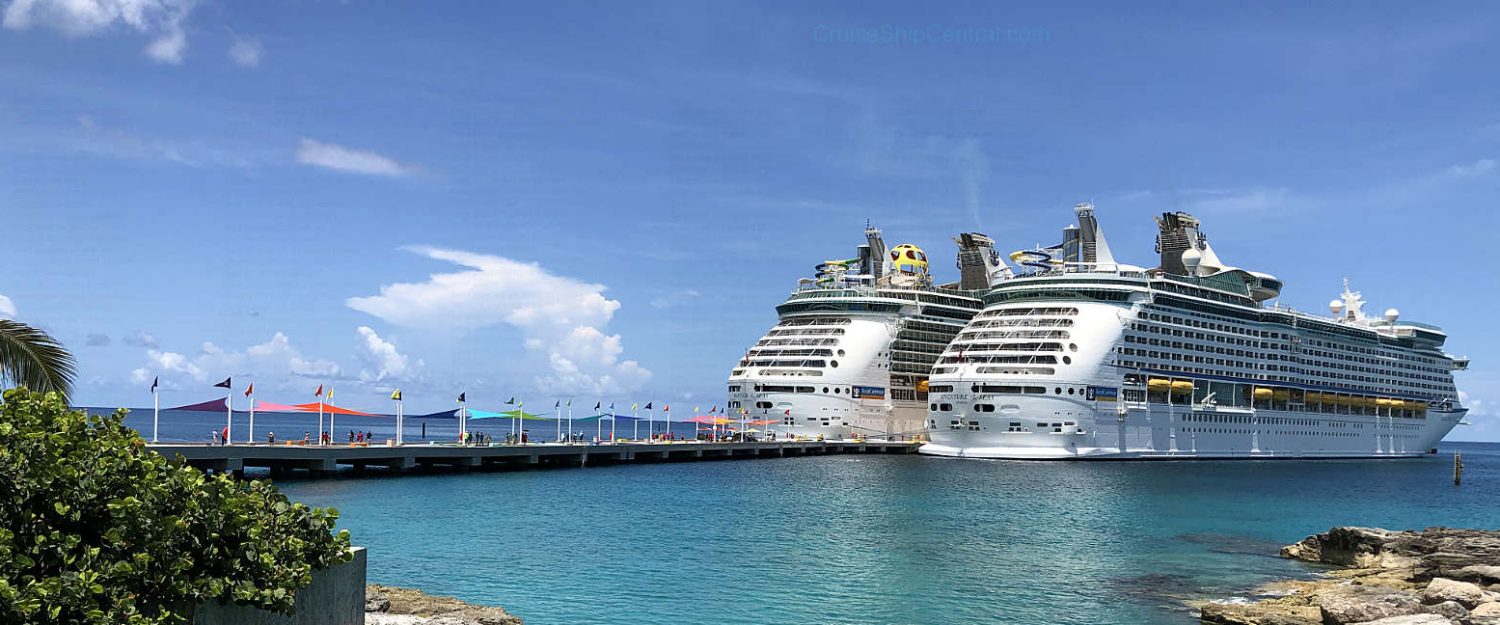A dreamy cruise vacation can be a delightful escape from the ordinary, allowing you to sail through crystal-clear waters, explore magnificent destinations, and savor mouthwatering cuisine. But amidst all the excitement, there’s one aspect that often causes stress and confusion: budgeting. Many individuals find themselves wondering, “How much do you typically spend on a cruise?” Fortunately, I have some insider tips and tricks to help you navigate through the process of budgeting for a cruise vacation successfully. Stick around, and you’ll learn how to make the most out of your cruise experience without breaking the bank.
Choosing the Right Cruise

Researching Cruise Options
When choosing the right cruise, it is essential to conduct thorough research on the different cruise options available. Consider the cruise lines, destinations, and ship types that best align with your preferences. Look into the reputation and reviews of each cruise line to ensure a positive experience. Websites, travel agents, and online forums can offer valuable insights and recommendations from experienced cruisers. Taking the time to research will help you narrow down your options and find a cruise that suits your interests and needs.
Considering the Length of the Cruise
The length of the cruise plays a crucial role in determining both your overall experience and budget. Decide whether you prefer a short getaway or a longer, more immersive journey. Shorter cruises may be more affordable, but they may also offer limited time in each destination. Longer cruises provide the opportunity to explore multiple ports and enjoy more onboard activities but may come at a higher cost. Consider your time constraints and budget when selecting the length of your cruise.
Selecting the Itinerary
The cruise itinerary is another significant factor to consider when choosing a cruise. Research the destinations included in each itinerary and evaluate whether they align with your travel preferences. Some itineraries may focus on cultural experiences, while others may emphasize beach destinations or adventure activities. Take into account the time spent at each port and the activities and excursions available. Opt for an itinerary that offers a balance between relaxation at sea and exciting on-shore adventures.
Setting a Budget
Determining the Total Amount Available for the Cruise
Before booking a cruise, it is important to determine the total amount of money available for your vacation. Consider your current savings, disposable income, and any additional funds you are willing to allocate for this trip. Be realistic about what you can afford and remember to include all the necessary expenses such as transportation, accommodation, meals, and activities. Having a clear understanding of your financial resources will allow you to plan your budget more effectively and avoid overspending.
Allocating Funds for Different Categories
Once you have determined the total amount available for your cruise, it is time to allocate funds for different categories. Divide your budget into segments such as transportation, accommodation, meals, entertainment, and additional expenses. This division will help you understand how much you can spend on each aspect of your cruise and enable you to make informed decisions when booking and planning. Remember to be flexible with your budget and leave some room for unexpected expenses or last-minute changes.
Including Extra Expenses
When setting a budget for a cruise, it is essential to consider additional expenses that may arise during your trip. These can include gratuities, Wi-Fi charges, spa services, shopping, and any other personal expenses. While these costs may not be included in the initial cruise package, they can significantly impact your overall spending. Research and estimate the average cost of these extras and include them in your budget. Being prepared for these additional expenses will help you avoid any financial stress during your cruise vacation.
Booking the Cruise
Finding the Best Time to Book
To ensure you get the best deal, it is important to find the optimal time to book your cruise. Booking well in advance can sometimes offer lower prices and more cabin options, especially for popular sailings. However, last-minute deals can also be a great way to save money if you are flexible with your travel dates. Research the cruise lines’ pricing patterns and keep an eye on promotions and discounts. Consider working with a travel agent who can provide insider knowledge and help you find the best time to book based on your preferences and budget.
Comparing Prices and Deals
Before committing to a specific cruise, compare prices and deals offered by different cruise lines and travel agencies. Take advantage of online travel websites or contact travel agents to request quotes for the cruise you are interested in. Sometimes, third-party websites may offer discounted rates or exclusive promotions that can help you save money. Be sure to compare the exact details of each offer, including cabin type, benefits, and any additional perks. By comparing prices and deals, you can make an informed decision and secure the best value for your money.
Considering Additional Costs
While the cost of the cruise itself is a significant expense, it is important to consider any additional costs that may arise during your vacation. These can include airfare to the cruise port, ground transportation, travel insurance, and visa fees if applicable. Factor in these additional costs when setting your budget to avoid any surprises. Research and estimate the average expenses for these elements and include them in your overall budget. This comprehensive approach will help you plan effectively and ensure all necessary expenses are accounted for.
Transportation Costs
Estimating Travel Costs to and from the Cruise Port
When budgeting for a cruise, it is crucial to consider the travel costs to and from the cruise port. If traveling by air, research flight prices and availability well in advance to secure the best rates. Consider factors such as baggage fees, transportation from the airport to the port, and any necessary overnight stays. If driving, estimate the fuel costs and toll fees, if applicable. Taking into account these transportation costs will allow you to plan and allocate your budget efficiently.
Considering Parking or Shuttle Fees
If driving to the cruise port, it is important to consider parking fees. Many cruise ports offer long-term parking options, but it is essential to research the costs associated with them. Some hotels near the cruise port may offer parking packages for guests, providing a convenient and cost-effective option. Alternatively, some cruise lines offer shuttle services from designated meeting points, which can be a more affordable choice if parking fees are significant. Remember to factor in these additional costs when planning your transportation budget.
Accommodation Costs
Choosing the Right Cabin Type
Accommodation costs can vary significantly depending on the type of cabin you choose. Cruise ships offer a range of cabin options, from interior cabins to balcony suites. Consider your preferences and needs when selecting a cabin type. If you value natural light and a private outdoor space, a balcony cabin may be worth the additional investment. However, if you plan to spend most of your time exploring the ship and its destinations, an interior cabin might be a more economical choice. Evaluate the different cabin types and their associated costs to find the right balance for your budget.

Understanding the Difference in Pricing
Cruise lines often offer various pricing options for the same cabin type. These differences in pricing can be due to factors such as location on the ship, proximity to amenities, and level of luxury. Research and compare the pricing details for each cabin category to understand the various features and amenities that come with each price point. While upgrading to a higher-priced cabin may enhance your overall experience, it is important to consider whether the additional amenities justify the cost for you personally.
Considering Upgrades and Discounts
Always be on the lookout for potential upgrades and discounts offered by the cruise lines. These can include cabin upgrades, onboard credits, complimentary specialty dining, or discounted excursions. Check the cruise line’s website, subscribe to newsletters, or follow them on social media to stay informed about any promotions or deals. Travel agents may also have access to exclusive offers and discounts. By taking advantage of these upgrades and discounts, you can enhance your cruise experience without exceeding your budget.
Meal Expenses
Determining the Dining Style
Cruise ships offer a variety of dining options, and determining your preferred dining style is essential for planning your meal expenses. Most cruises include complimentary dining options such as main dining rooms and buffet-style restaurants. However, specialty restaurants with additional charges provide a more upscale dining experience. Decide whether you prefer the inclusivity of complimentary dining or if you would like to indulge in specialty restaurants at an extra cost. Considering your dining style will help you allocate funds accordingly and avoid any financial surprises.
Researching Dining Packages
If you are interested in specialty dining but want to manage your meal expenses, consider researching dining packages offered by the cruise line. These packages often provide discounts for dining in specialty restaurants or offer a set number of specialty dining experiences at a reduced price. Evaluate the dining packages available for your cruise and calculate the potential savings they can offer. This way, you can enjoy exceptional dining experiences while staying within your allocated budget.
Planning for Specialty Dining
If you decide to indulge in specialty dining, it is important to plan ahead. Some specialty restaurants require reservations, and availability can be limited, especially during peak dining times. Research the specialty restaurant options on your cruise and make any necessary reservations in advance to secure your desired dining experiences. By planning ahead, you can avoid disappointment and ensure your specialty dining budget is well-spent.
Entertainment and Activities
Considering the Cost of Onboard Activities
Cruise ships offer a wide range of onboard activities and entertainment, from live shows and concerts to fitness classes and cooking demonstrations. While many activities are included in the cruise fare, some may come at an additional cost. Research the onboard activities available on your chosen cruise and determine if there are any extra fees associated with them. Consider which activities are a priority for you and allocate funds accordingly to participate in these experiences without exceeding your budget.
Researching Excursions and Port Fees
When visiting different ports of call, you may want to explore various excursions and activities offered by the cruise line or local tour operators. Research these excursions in advance and determine their costs to account for them in your budget. Additionally, some ports may charge entrance or docking fees, which are not always included in the overall cruise fare. It is essential to research and understand any potential port fees to ensure they are adequately budgeted for. Taking these factors into consideration will help you plan your entertainment and activity expenses effectively.
Beverage Costs
Understanding Beverage Package Options
Cruise lines often offer beverage packages that allow guests to enjoy unlimited drinks at a fixed price. These packages can be a cost-effective way to manage your beverage expenses, especially if you enjoy alcoholic beverages, specialty coffees, or soft drinks. Research the beverage package options available on your cruise and compare them with the individual drink prices to determine the best value for your preferences. Remember to consider any restrictions, such as minimum age requirements or excluded premium drinks, to ensure the package aligns with your preferences and budget.
Considering Individual Drink Prices
If a beverage package doesn’t suit your needs, it is important to consider the individual drink prices on the cruise. Some cruises offer discounted drink prices during certain times or happy hours, so research these opportunities to save money. Set a daily or overall beverage budget and plan accordingly to avoid overspending. By being mindful of individual drink prices, you can manage your beverage costs effectively without compromising on your vacation experience.
Including Tips and Taxes
When budgeting for beverage costs, it is crucial to factor in tips and taxes. Some cruise lines automatically add gratuities to beverage purchases, while others allow guests to add tips at their discretion. Calculate the approximate amount of tips and taxes that will be added to your beverage expenses and account for them in your budget. By including these additional charges, you can ensure your budget is comprehensive and accurate.
Additional Onboard Expenses
Setting Aside Funds for Souvenirs and Shopping
No vacation is complete without some souvenir shopping. Set aside funds in your budget specifically for souvenirs and shopping. Determine an approximate amount you are willing to spend on these items and stick to it. Consider browsing through onboard shops, local markets at ports of call, or evaluating duty-free shopping options. By planning ahead and setting aside specific funds for souvenirs and shopping, you can enjoy the experience without worrying about overspending.
Budgeting for Spa and Salon Services
Cruise ships often provide luxurious spa and salon services, ranging from massages and facials to haircuts and manicures. These services can be a wonderful way to relax and pamper yourself during your cruise vacation. However, they often come at an additional cost. Research the spa and salon services available on your cruise and determine which treatments are of interest to you. Allocate funds in your budget specifically for these services, ensuring you can indulge in some self-care without straining your overall finances.
Accounting for Internet and Phone Charges
While it is a great opportunity to disconnect during a cruise vacation, you may still need to stay connected with friends, family, or work. However, onboard internet and phone charges can add up quickly. Research the internet and phone packages available on your cruise and determine which option suits your needs and budget. Keep in mind that ship-wide Wi-Fi may be slower and more expensive than land-based connections. Allocate funds specifically for these charges to avoid any surprises when settling your final onboard account.
Finalizing the Budget
Summarizing All Expected Expenses
Once you have considered all the different categories and aspects of your cruise vacation, summarize all the expected expenses. List each expense category, such as transportation, accommodation, meals, entertainment, beverages, and any additional onboard expenses. Include both the estimated cost as well as any pre-booked items or packages. By summarizing all the expected expenses, you will have a clear overview of your budget and can ensure that no element is overlooked.
Adjusting the Budget as Necessary
With the summarized expected expenses in hand, evaluate your budget as necessary. Are there any categories that you need to adjust? Are there unexpected expenses that need to be accounted for? Be flexible and realistic in your evaluation, ensuring that your budget accurately reflects your preferences and financial capabilities. Adjustments may be necessary to align your expenses with your overall budget goals.
Allowing for Contingency Funds
Finally, it is always wise to allow for contingency funds in your budget. Unexpected expenses or last-minute opportunities may arise during your cruise vacation, and having some extra funds set aside can provide peace of mind. Determine an amount that you are comfortable allocating as a contingency fund. This way, if any surprises come your way, you can handle them without straining your budget or sacrificing your experience.
In conclusion, budgeting for a cruise vacation involves careful consideration and planning. By researching cruise options, setting a budget, booking strategically, and accounting for various expenses, you can ensure a stress-free and enjoyable experience. Remember, setting a budget allows you to make informed decisions, prioritize your preferences, and avoid any unnecessary financial burdens. Plan ahead, be flexible, and embark on your cruise vacation with confidence, knowing that you have made thoughtful financial choices.

